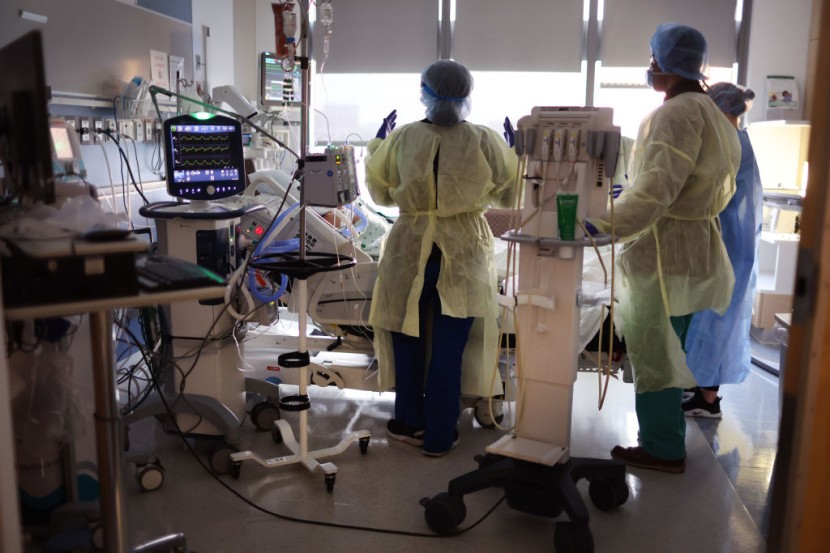
A new study found that the majority of patients who were likely infected with the omicron coronavirus variant were unaware of their health condition, which health experts argued was a key factor in the rapid spread of the disease.
Researchers at Cedars-Sinai, a non-profit health organization based in Los Angeles, observed the infectious status of individuals during the omicron surge in the United States. The variant was first detected in November 2021 and quickly became the most dominant strain of COVID-19.
Omicron Variant Awareness
Common symptoms of the variant are typically less severe than others and include cough, headache, fatigue, sore throat, and a runny nose, the researchers said. The study analyzed 2,479 blood samples from adult employees and patients at Cedars-Sinai Medical Center around the time of the omicron variant surge.
Out of the 210 people who lifely contracted the omicron variant, based on antibodies in their blood, 56% were not aware that they had the virus. The researchers also found that only 10% of those who were unaware reported having any symptoms relating to a common cold or other types of infection, as per NPR.
One of the authors of the study, Dr. Susan Cheng, said, "We hope people will read these findings and think, 'I was just at a gathering where someone tested positive,' or, 'I just started to feel a little under the weather. Maybe I should get a quick test.'"
Cheng, who directs the Institute for Research on Health Aging in the Department of Cardiology at Cedars-Sinai's Smidt Heart Institute, said that the better they understand the risks, the better they will be able to protect the health of the public as well as themselves.
Read Also: Nebraska Officials Suspect 'Brain-Eating Amoeba' is Behind Death of Child Swimming in a River
According to the Time, most of the people included in the study were vaccinated against the coronavirus and the researchers measured levels of two different types of antibodies. Those that the immune system made in response to the vaccines, and those that the immune system made after infection with the virus.
Addressing the Health Threat
At the start of the study, all of the volunteers had to have infection-induced antibody levels below a certain threshold, indicating they had not recently been infected with the virus. With that information, any rise in antibody levels served as a proxy for an infection.
Participants of the study also filled out health surveys describing their symptoms and any COVID-19 PCR testing to determine if they had an infection during the study period. The team's findings support early data from around the world that suggest throughout the pandemic, anywhere from 25% to 40% of SARS-CoV-2 infections have been asymptomatic.
Cheng and her colleagues are also studying patterns and predictors of reinfections and their potential to offer long-lasting immunity to the coronavirus. On top of raising awareness, the information could help people manage their individual risks.
The author of the study noted that more than one in every two people infected with the omicron variant were not aware of their situation, arguing that awareness will be crucial for allowing us to move beyond this pandemic, SciTechDaily reported.
Related Article:








